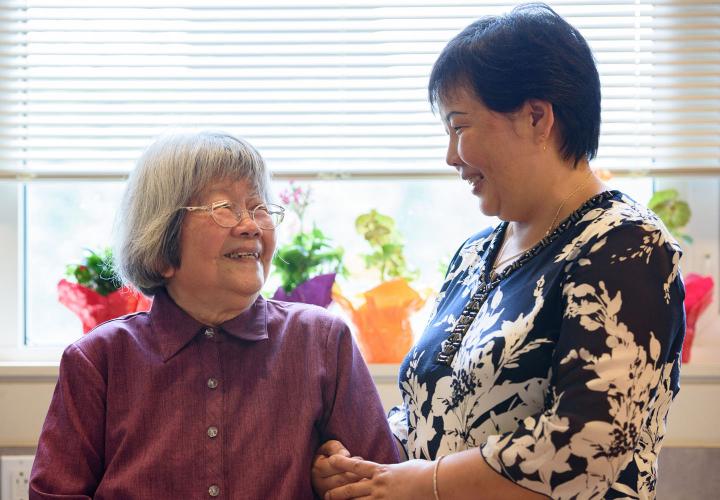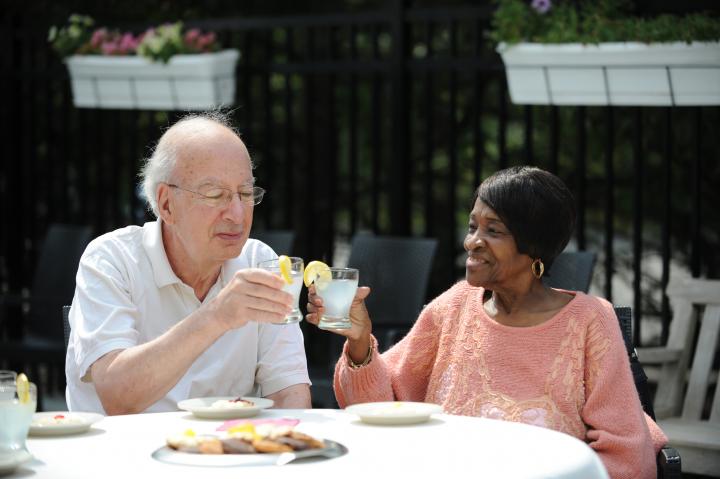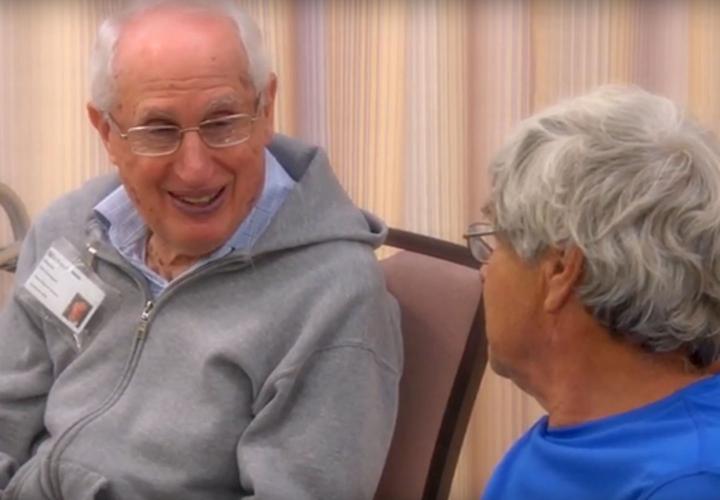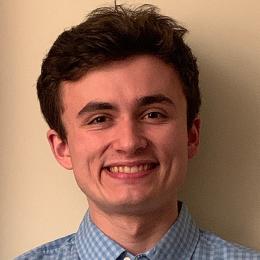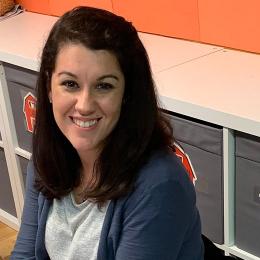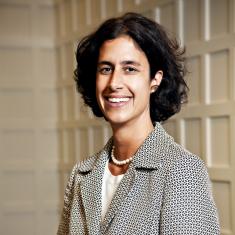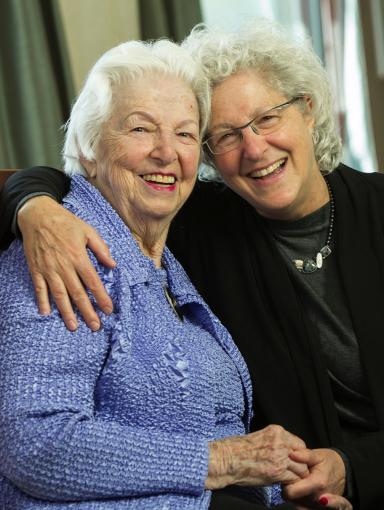BOSTON - Vitalize 360SM has been awarded a $100,000 grant to improve its software to promote healthy aging from Aging in America®, a not-for-profit that supports companies that offer technology solutions to help older adults maintain independence in the community. Vitalize 360 is a joint venture between two national senior services leaders Hebrew SeniorLife and Kendal.
“We are honored by the grant from Aging in America,” said Diana Cox, Executive Director of Vitalize 360. “It will jump-start development efforts for on-demand reporting about program outcomes, improve software navigation and usability, facilitate new ad hoc and report writing capacity, and offer residents/members access to their case files from their computer or smartphone.”
Vitalize 360 combines an innovative, person-directed approach to wellness coaching and leverages information derived from a scientifically-grounded assessment system to engage, challenge and inspire older adults. There are currently 33 senior living communities, continuing care at home, and subsidized housing programs in 13 states participating in Vitalize 360.
Vitalize 360 members often comment on the impact the program has on their lives. One commented, “When I look around and I'm feeling a little down, and I see these women and they’re working out in these classes and I say, ‘If they can do it, why shouldn't I be doing it?’” Another participant commented on the wellness coaching and said, “I think most people set goals when they're young and married and have small children. Now I see myself coming back to a lot of those things that I said, 'Well, I'm never going to do that at this age,' but I find I want to.”
“Aging in America’s mission is to inspire innovation that empowers, guides, educates and supports those individuals and organizations faced with the challenges and opportunities of aging,” said William T. Smith, Ph.D., President/CEO. “This is our first significant grant to another not-for-profit and it is designed to help expand this important work to a new level.”
With Vitalize 360, organizations can be more strategic and predictive around health and wellness operations and utilization. For senior living communities, Vitalize 360 can help residents live vibrantly and independently longer, potentially freeing health center beds and services for individuals in the community-at-large. The program gives care coordinators for continuing care at home programs additional tools to support healthy aging and reduce costs.
Hebrew SeniorLife and Kendal have long recognized the importance of measuring and influencing healthy aging outcomes for their respective organizations, and for the aging services field. Vitalize 360 is designed to develop engaged cultures that embrace well-being, person-directed care and quality services, and continuous learning.
About Hebrew SeniorLife
Hebrew SeniorLife, an affiliate of Harvard Medical School, is a national senior services leader uniquely dedicated to rethinking, researching and redefining the possibilities of aging. Based in Boston, the nonprofit, non-sectarian organization has provided communities and health care for seniors, research into aging, and education for geriatric care providers since 1903. For more information about Hebrew SeniorLife, visit https://www.hebrewseniorlife.org, follow us on Twitter @H_SeniorLife, like us on Facebook or read our blog.
About Kendal
Kendal is a not-for-profit organization headquartered in Kennett Square, Pennsylvania, where ground was broken for the first Kendal community in 1971. Kendal provides advice, leadership and support to the communities and services in eight states that make up the Kendal System, primarily by helping to develop and disseminate model practices, facilitate economies of scale and advance responsible growth. As a system of not-for-profit communities, programs and services founded on the principles of the Religious Society of Friends (Quakers), Kendal aspires to transform the experience of aging, guided by Kendal’s Values and Practices.
About Vitalize 360
Vitalize 360SM combines an innovative, person-directed approach to wellness coaching and the power of information derived from a scientifically-grounded assessment system. The program offers senior living communities, continuing care at home, and subsidized housing programs the tools to engage, challenge and inspire older adults. Currently there are 33 communities in 13 states participating in Vitalize 360SM. More information about Vitalize 360 is available from: Neil Beresin National Program Manager Vitalize 360 info@vitalize360.org 610.335.1283
